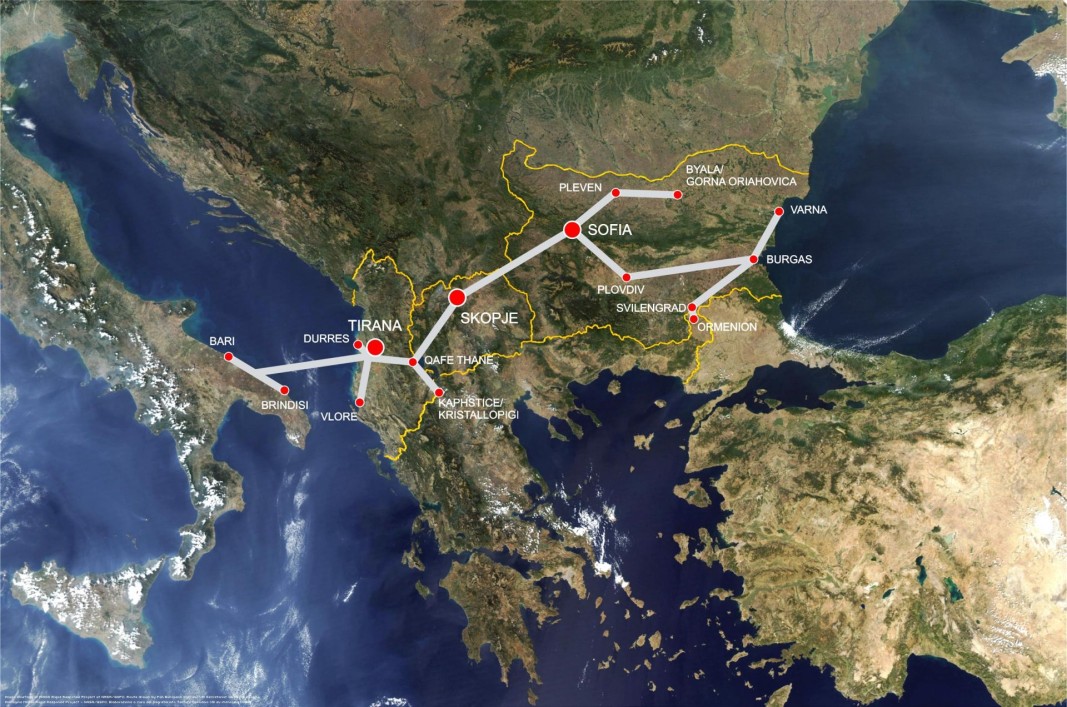The association ''Descendants of Refugees and Migrants from the Territory of the Republic of North Macedonia and Friends'' has sent an open letter to the Albanian community in North Macedonia and to the diplomatic missions accredited in North Macedonia and Bulgaria. The Albanian section of Radio Bulgaria also received the document.
The reason for the open letter are the statements made by representatives of two Albanian parties in North Macedonia regarding the status of Bulgarians in Bulgaria's southwestern neighbour. According to the VLEN party, which is part of the country's ruling coalition, the Bulgarian community cannot be included in the constitution because Bulgaria does not have a regular government and there is no one to talk to. The DUI party (Democratic Union for Integration), which was recently in power, has warned that "the Macedonians must maintain good relations with the Albanians, otherwise they will be absorbed by the Serbs, Bulgarians and Greeks''. It is important to note that the inclusion of ethnic Bulgarians in North Macedonia’s Constitution on an equal footing with other peoples is a condition for Bulgaria to open the door for the Balkan country to begin negotiations for European Union membership.
The open letter to the Albanian community in North Macedonia addresses only current issues and does not touch upon historical matters in any way, emphasized Associate Professor Spas Tashev, co-chairperson of the association ‘’Descendants of Refugees and Migrants from the Territory of the Republic of North Macedonia and Friends'' and head of the Demography Department at the Institute for Population and Human Studies at the Bulgarian Academy of Sciences. ''Our goal is to uphold the current dimensions of Bulgarian demands'', Associate Professor Tashev said in an interview with Radio Bulgaria and added:The association also disputes the fears that the Macedonians could be absorbed by the Bulgarians, Serbs and Greeks. In this context, the open letter—whose text has been discussed for two weeks and translated into Albanian, English, and adapted into the official language of North Macedonia—includes several letters from the 1960s in which Albanians referred to the local population as Bulgarians.
One of the issues addressed in the letter is related to another topical subject in the relations between Bulgaria and North Macedonia—the construction of the so-called Corridor No 8, which connects the Adriatic Sea and the Black Sea, passing through Albania, North Macedonia and Bulgaria. Efforts to freeze the project are ongoing, with the latest attempt involving Transport Minister Aleksandar Nikoloski, who pointed out that the construction of the 24-kilometer railway section from Kriva Palanka to the border with Bulgaria would be expensive and difficult. According to him, EUR 560 million is needed for the construction of the route. In his words, part of these funds could be used for the modernization of the existing railway line through Skopje, part of Corridor No 10, and for the construction of a high-speed rail segment, which would require EUR 220 million.
Railway line to Bulgaria has become unwanted by the new rulers in Skopje
Bulgaria is following statements by North Macedonia regarding Corridor No. 8 with increasing concern
In North Macedonia, there is a clear reluctance to implement this project, for which all possible excuses are being sought, Associate Professor Spas Tashev went on to say and added:

The letter also highlights another serious issue for North Macedonia that has existed for several years, related to leaks of classified NATO information to Belgrade.
The association ''Descendants of Refugees and Migrants from the Territory of the Republic of North Macedonia and Friends'' has sent the open letter to various media outlets in Bulgaria, Albania, North Macedonia and Kosovo, hoping that the presented arguments will reach as many representatives of the Albanian community in North Macedonia as possible.
Published and translated by Kostadin AtanasovMovement for Rights and Freedoms - New Beginning Leader Delyan Peevski spoke with Prime Minister Rosen Zhelyazkov on Monday, the party's press centre reported. "I reaffirmed my position of full support for the government as long as it works for the..
EU roaming fees to be eliminated for Albania and Montenegro Roaming charges between Albania and the EU will be completely eliminated in 2026, European Commission President Ursula von der Leyen said during her visit to..
Bulgaria’s Parliament failed to hold a session for the third consecutive day due to a lack of quorum. As a result, the scheduled parliamentary control, usually held every Friday, was also cancelled. Only 29 MPs from We Continue the Change –..
Movement for Rights and Freedoms - New Beginning Leader Delyan Peevski spoke with Prime Minister Rosen Zhelyazkov on Monday, the party's press centre..

+359 2 9336 661
